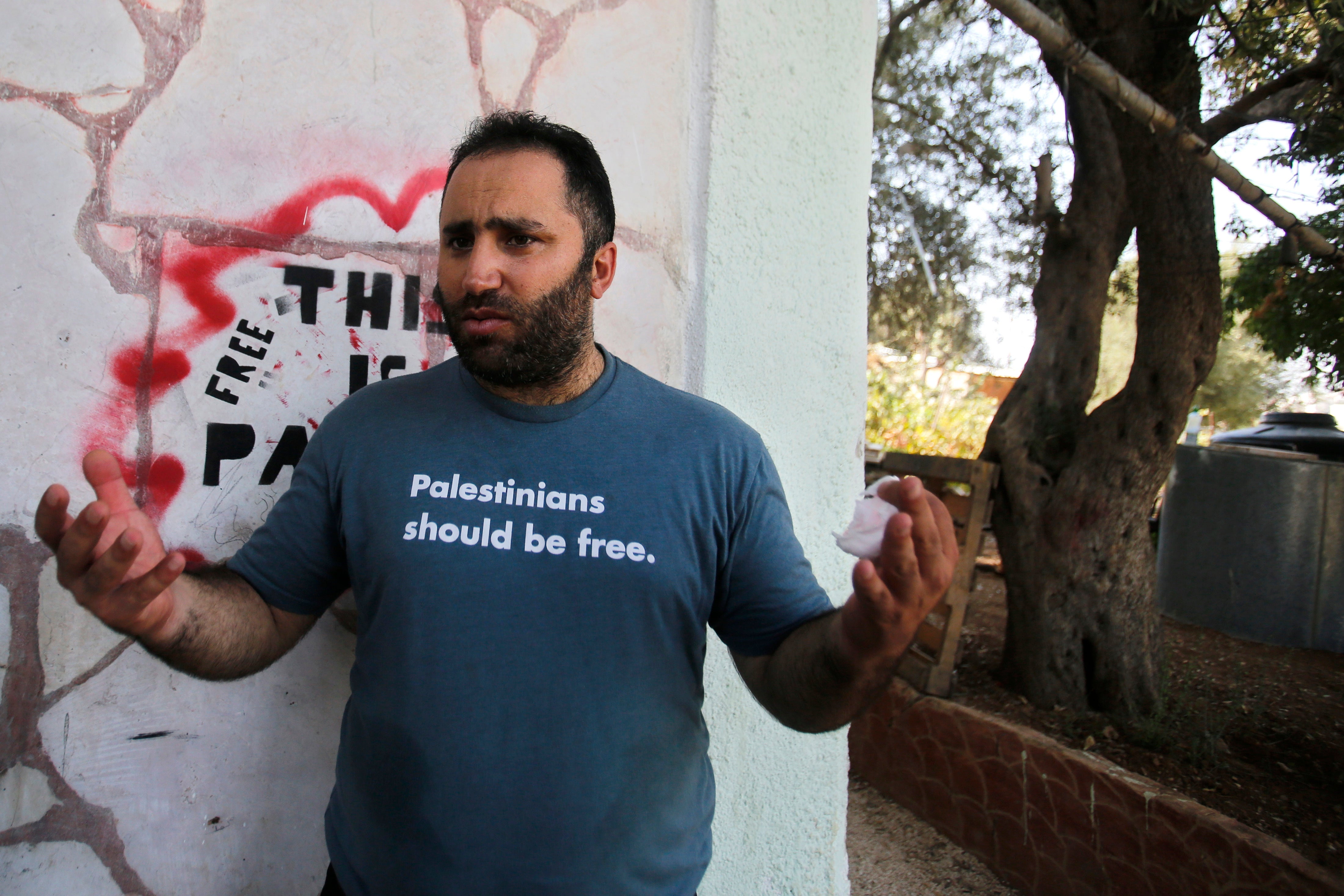Palestinian activist is expelled by Israeli forces from his home in a volatile West Bank city
Israel has expelled a prominent Palestinian activist from his home in a West Bank city at the heart of the Israeli-Palestinian conflict after he hosted a foreign journalist and a prominent Israeli activist

Your support helps us to tell the story
From reproductive rights to climate change to Big Tech, The Independent is on the ground when the story is developing. Whether it's investigating the financials of Elon Musk's pro-Trump PAC or producing our latest documentary, 'The A Word', which shines a light on the American women fighting for reproductive rights, we know how important it is to parse out the facts from the messaging.
At such a critical moment in US history, we need reporters on the ground. Your donation allows us to keep sending journalists to speak to both sides of the story.
The Independent is trusted by Americans across the entire political spectrum. And unlike many other quality news outlets, we choose not to lock Americans out of our reporting and analysis with paywalls. We believe quality journalism should be available to everyone, paid for by those who can afford it.
Your support makes all the difference.Israeli troops expelled a prominent Palestinian activist from his home in a West Bank city at the heart of the Israeli-Palestinian conflict, after he hosted a foreign journalist and a well-known Israeli activist.
Critics accused the military of using the cover of the Israel-Hamas war to expel Issa Amro from volatile Hebron, the only city in the West Bank where Jewish settlers live among Palestinians.
The military had no immediate comment.
Amro said the journalist came to his house in Hebron to gather material for an article about the situation in the occupied West Bank since the outbreak of the Israel-Hamas war nearly three weeks ago, after a brutal rampage by Hamas gunmen from Gaza in Israeli border communities.
In the West Bank, the Israeli military stepped up arrest raids in pursuit of Hamas militants, and dozens of Palestinians, including several minors, were killed, most in clashes with troops, but also during protests and in attacks by Jewish settlers, according to the Palestinian Health Ministry.
Amro said soldiers forced him and his guests out of his house and told him over the weekend that he was not allowed to return until notified. They then expelled him to an area of Hebron that is administered by the Palestinian Authority, a self-rule government that has civilian control over Palestinian population centers.
“They don’t want me to talk to the media,” Amro said. On Oct. 7, the day of the Hamas attack, he added, he was detained at a military base where he was held for 10 hours and beaten despite being handcuffed, blindfolded and gagged.
Israeli activist Yehuda Shaul was with Amro when he was expelled from his house. He said soldiers and police ordered him, the foreign journalist and Amro to leave without producing any kind of official order.
“When something happens in Gaza, right away, it’s ‘Let’s beat up Issa,’” Shaul said. “I think that can serve as a compass for the direction of where things are going and what the dynamics are in Hebron.”
Amro has been detained by the Israeli military multiple times. He told The Associated Press on Thursday that he has never been expelled from his home before.
He is one of more than 200,000 Palestinians who live in Hebron. Hundreds of hard-line Jewish settlers live in the heart of the city in heavily fortified enclaves guarded by Israeli troops. There is a long history of tensions between the two communities.
Israel captured the West Bank in the 1967 war, and the Palestinians want it to form the core of a future state. The Palestinians and much of the international community view the presence of half a million Jewish settlers in the West Bank as a violation of international law and an obstacle to peace.
Amro’s lawyer, Michael Sfard, has demanded that his client be allowed to return to his house, saying the military authority in Hebron “just took advantage of the situation to do what they always wanted to do, and that is to expel Issa from the city.”
“It’s not a complicated issue: The pretext was that he hosted guests. In no scenario is hosting guests a justification for expulsion,” Sfard said. “No one would ever tell Jews in Hebron not to host people.”
“I am very sad that the Israeli legal system, perhaps like legal systems elsewhere, doesn’t protect basic rights in times of war,” he added. “But ultimately it (the expulsion) will end because it isn’t legal.”